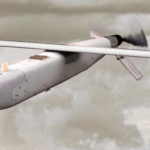In a dramatic escalation of hostilities between India and Pakistan, multiple locations in Jammu, including the strategically vital Jammu Airport, were targeted by Pakistani rockets and drones on Thursday night, just a day after India’s Operation Sindoor struck terrorist camps in Pakistan and Pakistan-occupied Kashmir (PoK). This audacious attack, described by Indian officials as a “major escalation,” has heightened fears of a broader conflict between the nuclear-armed neighbors.
Rocket and Drone Assault on Jammu Airport
Currently Pakistan has launched a coordinated attack targeting Jammu’s airstrip and surrounding areas, including Satwari, Sunjuwan, Janipur, and Chowadhi. According to India Today, air raid sirens blared, and a complete blackout was enforced around the airstrip as rockets were fired toward the airport, a critical hub for both civilian and military operations. 10–15 missiles directed at the region, all intercepted midair by India’s advanced S-400 Triumf air defense system, preventing any ground hits. Indian Air Defense Systems also detected and neutralized Pakistani drones spotted over Jammu city, with no confirmed damage to the airport or civilian infrastructure.
The Indian Defence Ministry confirmed that Pakistan attempted to strike military targets across 15 cities in northern and western India, including Jammu, Srinagar, Pathankot, Amritsar, and Chandigarh, using a combination of drones and missiles. India’s Integrated Counter UAS Grid and S-400 systems thwarted these attacks, with eight missiles destroyed over Jammu alone. The ministry described the assault as a “desperate retaliation” for India’s Operation Sindoor, which targeted nine terrorist facilities in Pakistan and PoK on May 6–7, killing over 100 terrorists linked to the April 22 Pahalgam terror attack that claimed 26 civilian lives.
Operation Sindoor: The Trigger for Pakistan’s Response
The Jammu airport attack follows India’s Operation Sindoor, a 23-minute operation involving Rafale jets armed with SCALP missiles and AASM Hammer bombs, alongside HAROP and SkyStriker drones. The strikes hit terrorist infrastructure in locations like Bahawalpur, Muridke, Muzaffarabad, and Kotli, targeting bases of Jaish-e-Mohammed and Lashkar-e-Taiba. India’s Ministry of Defence emphasized that the operation was “measured and non-escalatory,” avoiding Pakistani military facilities to prevent broader conflict. Pakistan, however, claimed the strikes killed 26 civilians, including children, and damaged civilian sites like the Bilal Mosque in Muzaffarabad, labeling the operation a “cowardly attack.”
Pakistan’s military response included heavy shelling along the Line of Control (LoC) in districts like Poonch, Kupwara, Baramulla, Rajouri, and Mendhar, marking the 12th consecutive night of ceasefire violations. The Jammu airport attack, however, represents a significant escalation, targeting a high-profile civilian and military asset. Pakistan’s military claimed to have downed 25 Indian drones and five fighter jets, though India has not confirmed these losses, and French officials reported only one Rafale jet downed during Operation Sindoor.
Impact and Regional Fallout
The attack on Jammu airport prompted immediate security measures, including airspace closures and flight cancellations by Air India, IndiGo, and SpiceJet across northern India, affecting cities like Jammu, Srinagar, Leh, and Amritsar. Schools and colleges in Jammu, Samba, Kathua, Rajouri, and Poonch were shut down, and blackout measures were enforced in Amritsar and Jammu to ensure public safety. Civilians in border areas have begun cleaning bunkers, fearing further escalation, while panic buying has been reported in Punjab.
Indian Foreign Secretary Vikram Misri accused Pakistan of targeting the Sikh community in Jammu and Kashmir, claiming three Sikhs were killed in related skirmishes, and warned that further actions would be met with a strong response. Pakistan’s Information Minister Attaullah Tarar vowed a “befitting reply,” while Prime Minister Shehbaz Sharif called India’s actions a “blatant act of war.” The international community, including the U.S., UK, and Qatar, has urged restraint, with the UN scheduling a meeting to address the crisis.
Why Jammu Airport Matters
Jammu airport, also known as Satwari Airport, is a dual-use facility critical for civilian travel and military operations in the sensitive Jammu and Kashmir region. Its proximity to the LoC and International Border makes it a strategic target for Pakistan, aiming to disrupt India’s military logistics and civilian morale. The successful interception of Pakistan’s missiles and drones underscores the effectiveness of India’s air defense systems but highlights the growing audacity of Pakistan’s military tactics amid heightened tensions.
What’s Next?
As India and Pakistan exchange accusations and military posturing, the Jammu airport attack has pushed the region closer to a broader conflict. India’s Army Chief General Upendra Dwivedi paid tribute to Lance Naik Dinesh Kumar, killed in Pakistani shelling in Poonch, and vowed to thwart “nefarious designs” with “resolute and punitive action.” Meanwhile, Pakistan’s testing of ballistic missiles on May 3 and its use of drones like the Bayraktar TB2 indicate a readiness to escalate further.



